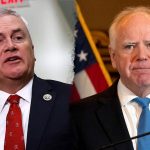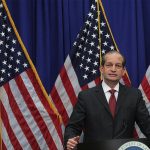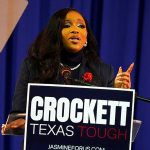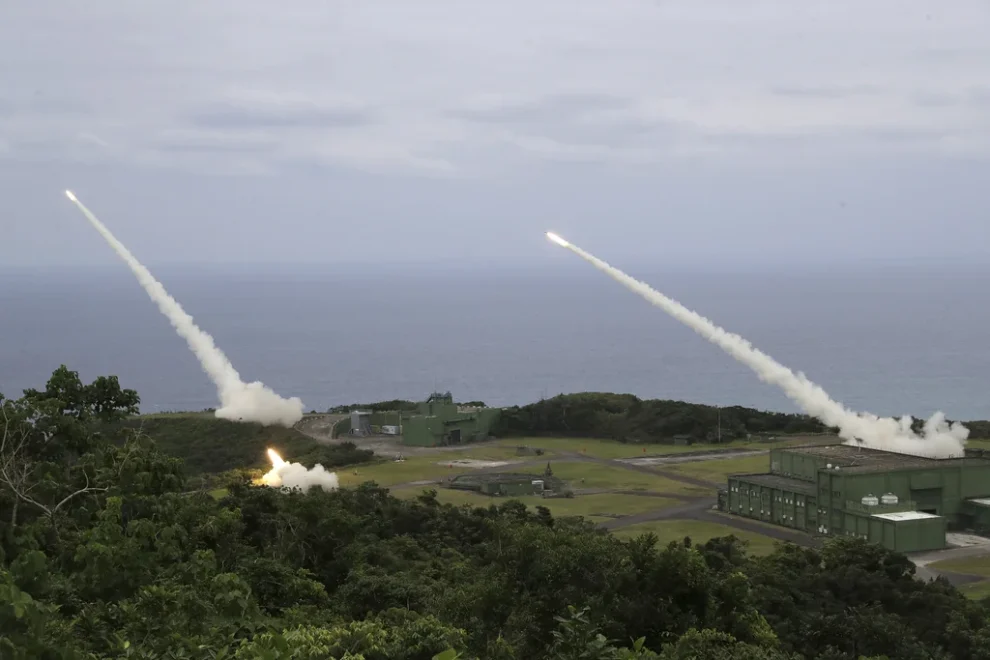Taiwanese President Lai Ching-te voiced his hope for peace with China, but is boosting the country’s defenses amid Beijing’s frosty approach to peace talks.
Speaking with reporters while marking his first year in office, Lai echoed the famous dictum of the Roman writer Vegetius: “If you want peace, prepare for war.”
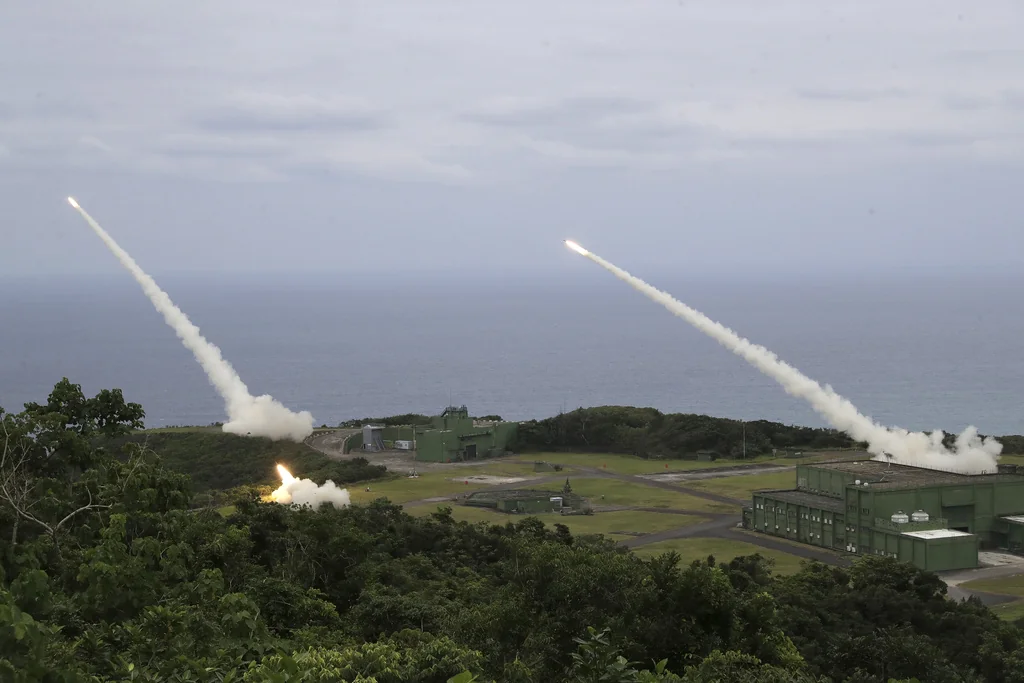
“I, too, am committed to peace. Because peace is priceless and war has no winners. But when it comes to seeking peace, we cannot have dreams or illusions,” he said, adding that the country would strengthen its defenses to deter conflict.
“I also reiterate here — Taiwan is happy to have exchanges and cooperation with China as long as there is reciprocal dignity,” Lai continued. “Using exchanges to replace hemming in, dialogue to replace confrontation.”
Lai’s address touched on a variety of topics, touting his administration’s accomplishments, primarily in investment and trade. He wove these arguments into the reaffirmation of an independent Taiwanese identity, praising the island’s commitment to democracy and against authoritarian modes of government.
“Our past generations, through valiant sacrifice and devotion, bravely resisted authoritarianism and pursued democracy. Today’s younger generations are able to proactively engage in politics, protect the nation, further entrench democracy, and strive for a diverse Taiwan through all manner of constitutional and legal means, without fear of difficulty. This is the democratic Taiwan we take pride in,” he said, according to a readout from his office.
“I am confident that no one Taiwanese would give up their free and democratic way of life. And no president can abandon the values of freedom and democracy,” Lai added.
The president also touched on tensions with the U.S. over tariffs, shrugging it off as healthy competition and quoting the Bible to support his argument.
“For many years now, Taiwan, the U.S., and our democratic partners have actively engaged in exchange and cooperation, spurring mutual growth. Among friends, there is always some friction; but that friction is always resolvable. Just as it says in the Bible, ‘As iron sharpens iron, so one person sharpens another.’ Through mutual exchange, friends can smooth out their shortcomings and further hone their strengths. Even when differences arise, so long as there is a foundation built on trust and honest dialogue, friends can better understand one another and further deepen their bonds,” he said.
He concluded his speech by pledging to make Taiwan “a global beacon, a pilot for world peace, and a force for global prosperity.”
Beijing didn’t take well to Lai’s address. Its Taiwan Affairs Office denounced the speech as a “two-faced tactic” that was a “waste of effort and doomed to fail,” Reuters reported.
“No matter what the leaders of the Taiwan region say or how they say it, it cannot change the fact that Taiwan is a part of China … nor can it stop the inevitable trend of national reunification,” the office’s spokesman Chen Binhua said in a statement to the outlet.
Taiwan is held by Beijing as a region of China, a position the U.S. supports but maintains “strategic ambiguity” about whether it would defend the island in case of a Chinese military effort to de facto bring it under its control.
Lai’s address is a marked departure from rhetoric utilized earlier this month to mark the 80th anniversary of the Allies’s victory over Nazi Germany in World War II.
“Taiwan and Europe are jointly facing the threat of a new totalitarian group,” he said in a speech, warning against “appeasement.”
In March, the president labeled China a “foreign hostile force” and instituted a slew of national security measures, angering Beijing and triggering new military exercises.
Last week, China’s defense ministry called Lai a “Taiwan Strait crisis maker.”
A feared Chinese invasion of Taiwan has been the focus of U.S. policymakers for years, but a mix of strategic ambiguity, economic interdependence, and an insecure Chinese military has so far deterred the possibility.
Though the U.S. continues to send arms to Taiwan, Taipei only accounts for a minuscule amount of U.S. arms exports — 1.5% as of 2024, or the 18th biggest importer of U.S. arms, according to the Stockholm International Peace Research Institute. The first Trump administration shipped a total of $18.27 billion in arms to Taiwan in four years, compared to $8.38 billion sent during the Biden administration. In comparison, the Department of Defense has spent over $110.7 billion in aid to Ukraine since February 2022.
No publicly disclosed weapons shipments have been sent to Taiwan during the second Trump administration so far, according to the Forum on the Arms Trade.


